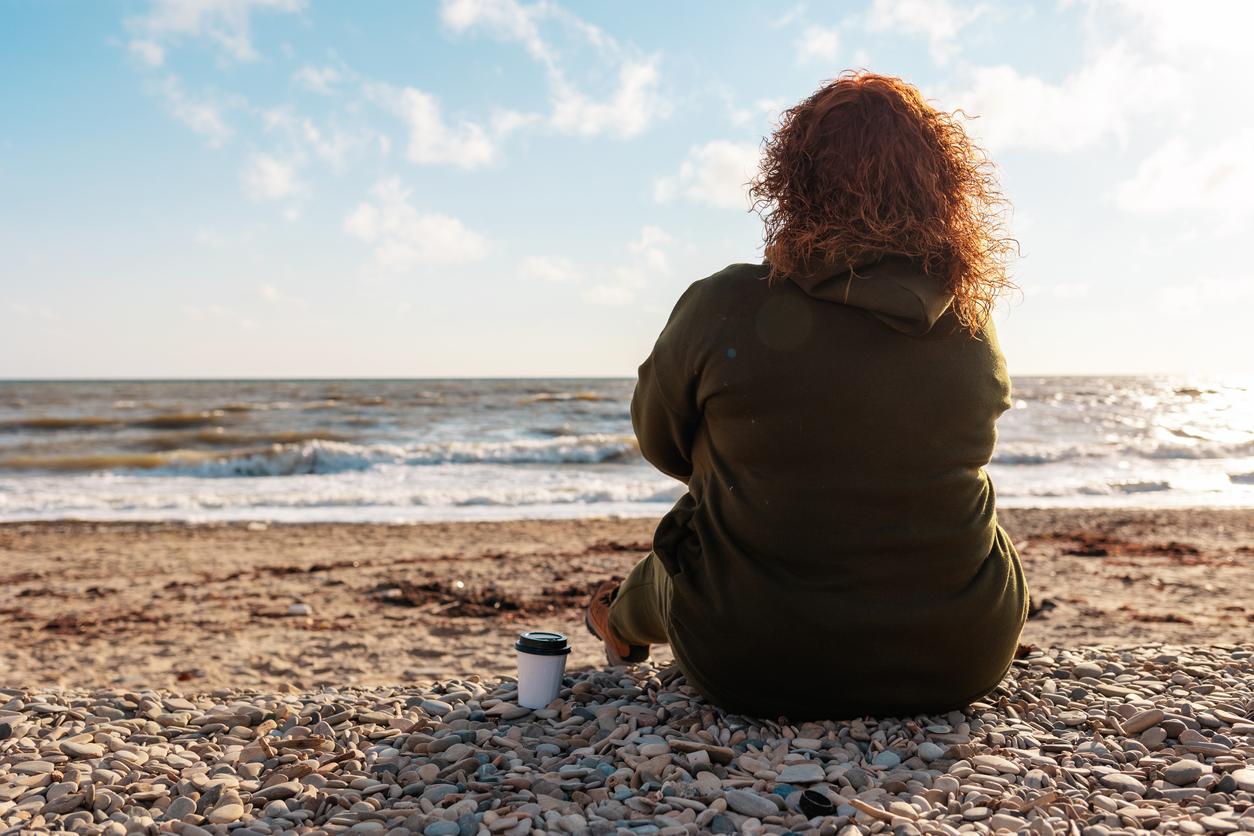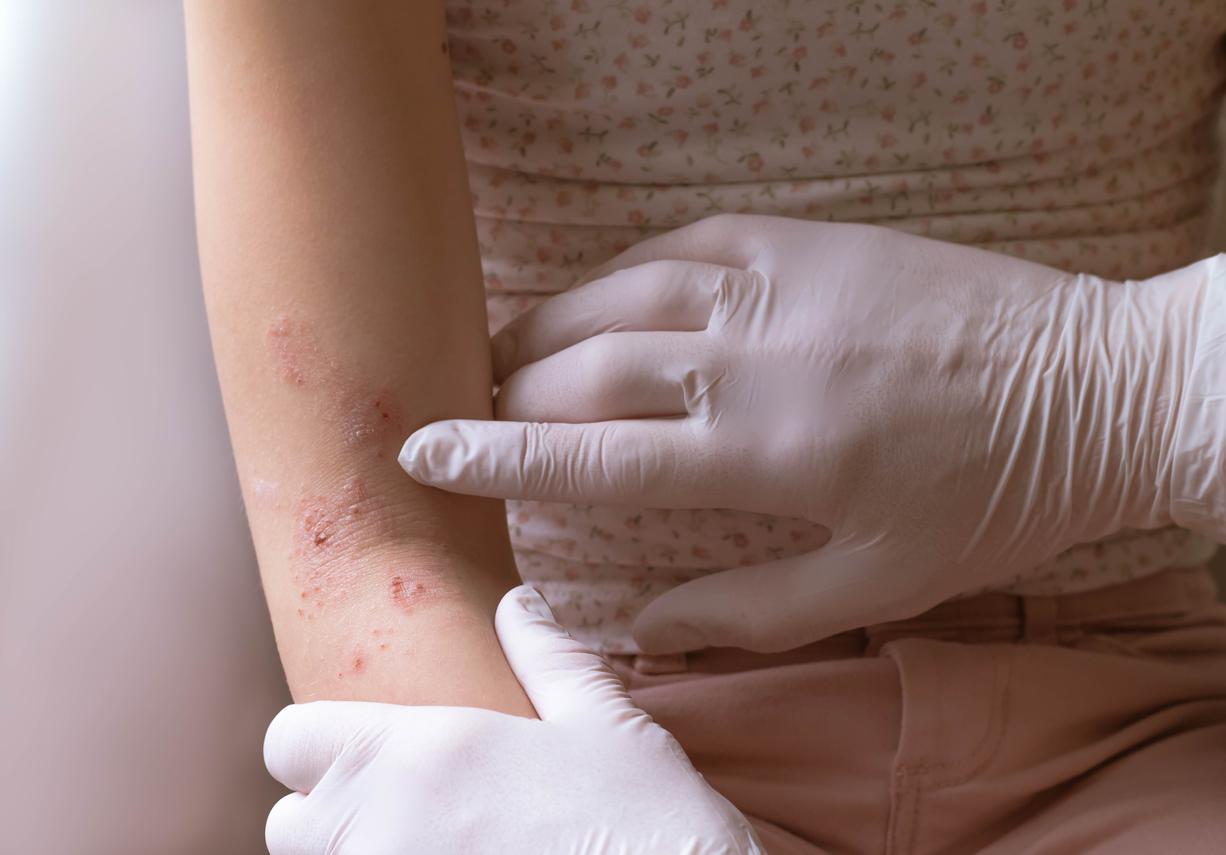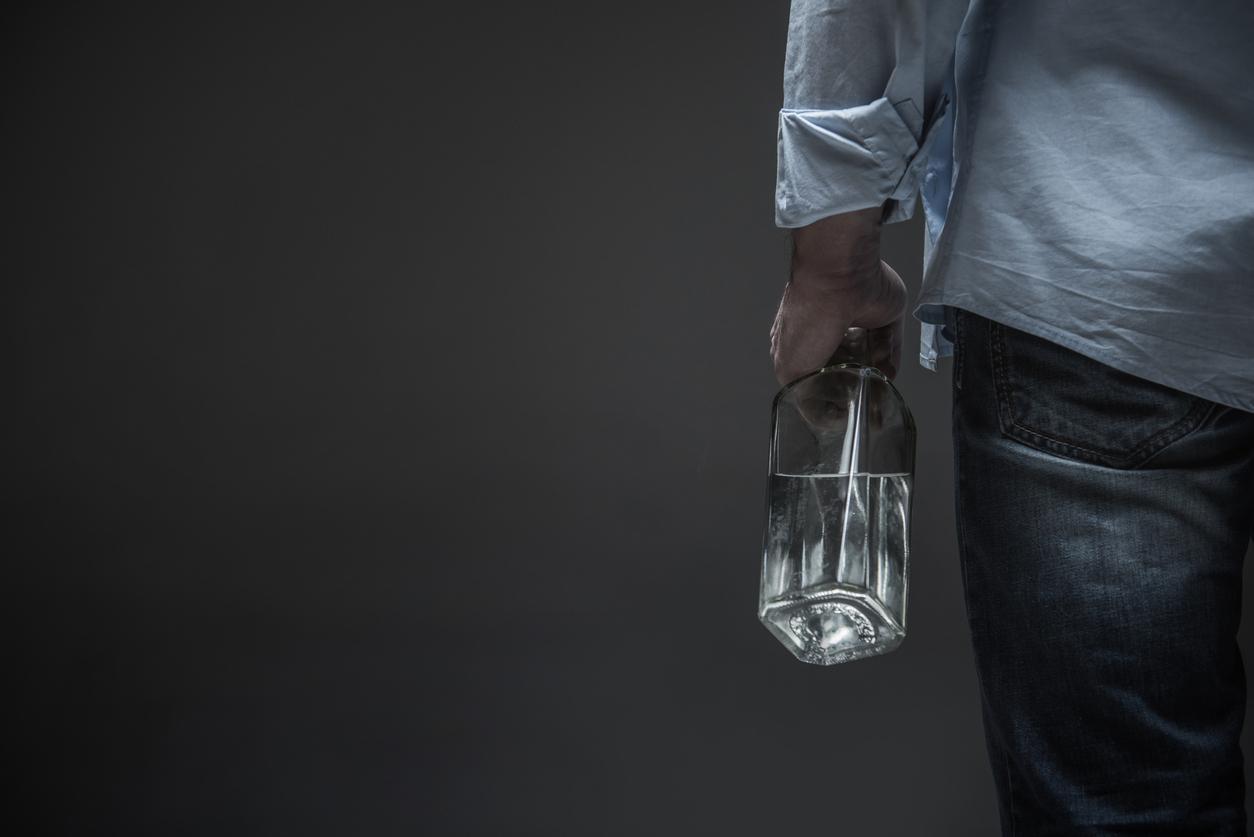It affects one in ten children in France and frequently disappears during adolescence. But atopic dermatitis can also persist into adulthood. The day after the international day which was dedicated on September 4 to this disease, the testimony of a patient, Marjolaine Hering, who, at over 40 years old, still lives under the threat of eczema flare-ups.

– Why Doctor: You suffer from atopic dermatitis, a disease also called eczema. When did it appear?
Marjolaine Hering : I was about 18 months old. The diagnosis was made by the pediatrician who was following me at the time, it was quite quick, there was no diagnostic error but rather a therapeutic error! My parents made a choice in favor of an alternative treatment when I suffered from very, very bad eczema. I had everything you could imagine, a magnetizer, an energetician and above all a lot of homeopathy. But throughout this period, they explained to me that it was in my head…
– Beyond the itching and suffering, did this disease cause you problems during your childhood?
My first memories are around age 5, around the end of kindergarten where it really intensified. I had really generalized eczema, rather severe, oozing, very visible and quite painful. I actually had raw skin on almost my entire body, so physically it was complicated and psychologically too, of course. There, yes, it creates problems at school with the other children. So we see all that it entails when we are a little different, mockery, etc. Also with certain teachers who made remarks about the fact that I missed class too often. There were also people who were afraid that it was contagious, who isolated me, who didn’t want me to go near others. So it was quite complicated.
Eczema: “the hereditary cause was confirmed to me”
– When did you receive appropriate treatment?
Around the age of sixteen, I was in second grade, I asked to see a dermatologist, which had not been done until then. I started looking for information and getting a little more insight into the causes. It’s quite vague. The hereditary cause was confirmed to me after five months in my family where other people also suffer from eczema. Afterwards, knowing why it manifests itself or not in a person… But I was able to have access to classic treatments, cortisone, dermo-corticoids. And the sun also had an effect on me: already when I was a child, the only periods during which I did not have eczema were in July and August.
– This disease actually begins during childhood and often disappears in adulthood. This was not the case for you. Do you know why ?
No, they didn’t tell me why, but we actually know that in most patients it calms down after adolescence, but there is no real explanation. Why does this persist for some people? I still don’t have an answer to that. You have to live with a chronic illness and we will say that I count on spacing out the attacks, with the hope of seeing them disappear for several years.
“I have attacks that can be triggered very simply when it’s very hot, when I’m sweating, when I’m doing sports”
– Where are you today with the symptoms of this disease?
Today I am being treated and I experience moments when I am in remission and moments of flare-ups which are triggered by many factors. This is one of the problems of the disease, there are quite a few triggering factors and it requires vigilance. Despite everything, crises can still happen. I had a very bad attack which was triggered by a food allergy, because I developed an allergy to gluten, to wheat. Then, for example, I have attacks which can be triggered very simply when it’s very hot, when I’m sweating, when I’m doing sports. In winter, when it’s very cold, I will have seizures. Then there is also stress which can come into play, depending on the patient.
– Apart from taking precautions against food allergies, should you follow a specific diet?
Patients are advised to eat a balanced diet. As in many chronic illnesses. And we are still in the presence of an inflammatory disease, so we try to avoid foods that promote inflammation such as sugar or processed foods. We must favor a diet based on fruits, vegetables and cereals.
– What precautions should you take when caring for your body, washing yourself for example?
I only use specific products since common products are too harsh on the skin. For atopic skin, we have ranges in pharmacies such as lavender oils, products without soap, without perfume, without alcohol. One of the problems with eczema is the fragility of the skin barrier. So we want to preserve this barrier as much as possible. And then the creams, the emollients are extremely important, they are part of the basic treatment and are specific.
– What impact does this disease still have on your daily life today?
So it has less impact than it could have because I control the crises. But nevertheless, there are still crises, which means always having a battery of medications ready because, in particular, consulting a dermatologist is complicated. Even in Paris, we have appointment times of 3 to 6 months. So if we have a crisis, you have to be ready, it’s a bit restrictive. And then I have to pay attention to what I eat and the clothes I wear. Despite everything, when attacks occur and we don’t really know why, we have to manage them, they can be more or less long with itching which can be very significant. This obviously impacts daily life, particularly sleep.
– You practice dancing. How did this activity help you?
Very early on, I danced. This allowed me, when I was a child, to escape from all that, what I was going through with the kids and to forget a little, to reconcile myself with the body. So there you have it, dance or yoga are also activities that lead to pleasant and positive sensations.
– You are part of an association which brings together patients who also suffer from atopic dermatitis. Is this commitment important to you?
Yes, it allows you to meet other people who are going through the same things, to discuss what we are going through, what we have experienced. There are many families who are part of this association, parents who are looking for answers for their children. And it’s true that I tell myself that informing parents will perhaps help people avoid what happened to me, the fact of not having been treated very young. And then it allows you to have information on the treatments, the disease, and also to meet professionals, dermatologists, doctors.
Atopic dermatitis: “if I have one message to convey, it is not to be afraid of treatments to relieve the symptoms”
– Precisely, regarding treatments, are there any innovations that allow better management of the disease?
For several years, there have been biotherapies. And there are treatments reserved for moderate to severe eczema, which are only accessible in hospital. These are still expensive treatments, but in any case, it gives hope. In particular, I know that if one day traditional treatment is not enough, I will have this option that I can test to relieve the symptoms as much as possible. This is a great step forward for patients. After several decades we will say without evolution, things have changed a lot in recent years.
– What would be your message for those who, like you, suffer from atypical dermatitis?
I think if I have one message to convey, it is to not be afraid of treatments to relieve symptoms. Which does not prevent us from trying to treat the substance as well. But often, when we have skin diseases, there are a lot of people who hesitate to use creams, who find that it is too superficial a treatment. I think it’s still important to be treated to feel better in your head.











-1740653386.jpg)

-1739366311.jpg)




